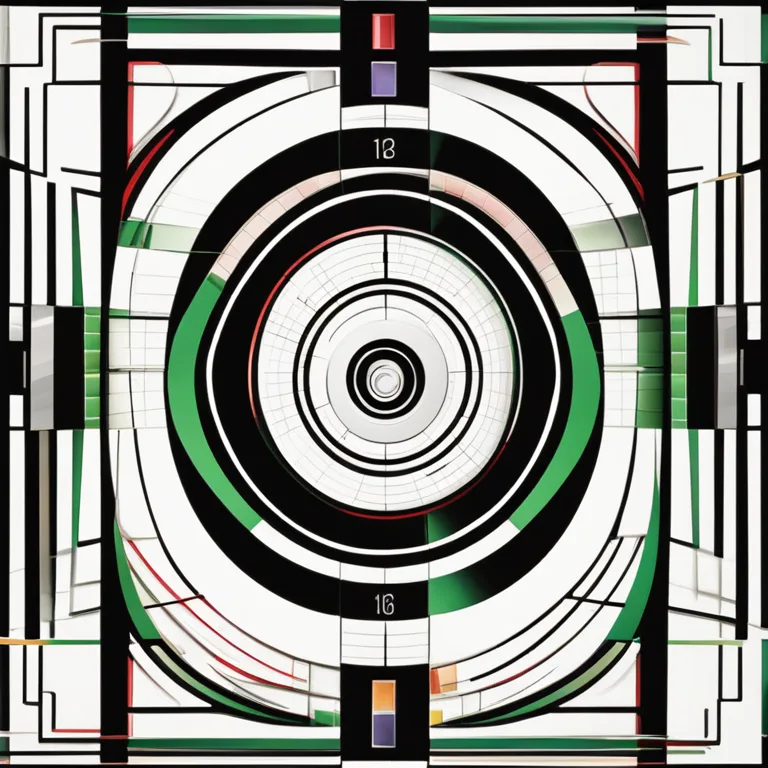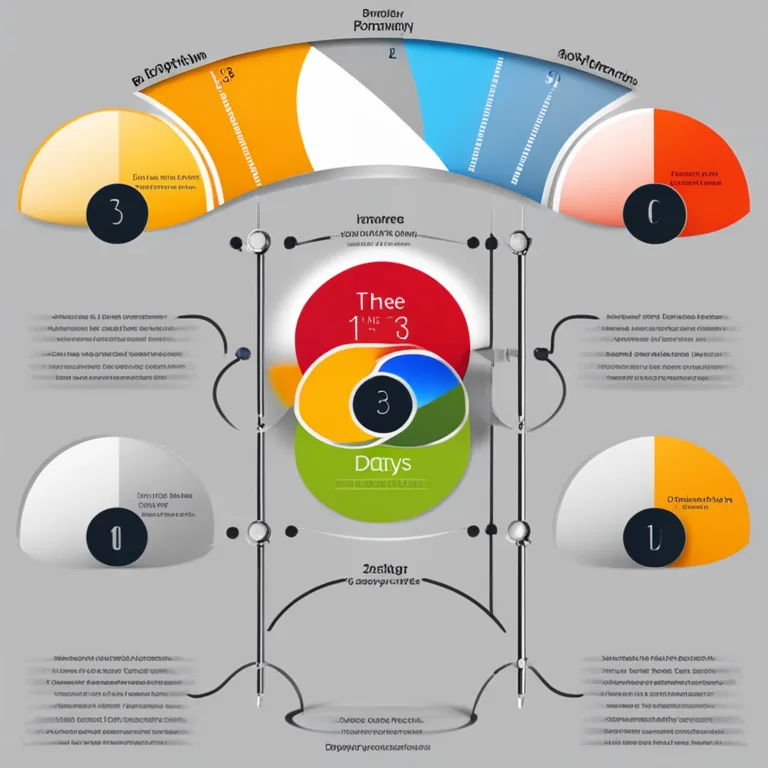
The Rhythms Within: A Guide to Biorhythms and Body Cycles
Discover how biorhythms influence your physical, emotional, and intellectual states and their impact on daily life in this comprehensive guide.
article by Adrian Wallace
Introducing Biorhythms
Biorhythms are a complex system of patterns that are thought to regulate various aspects of human behavior and well-being. The concept dates back over a century, with roots in various cultural beliefs about the cyclical nature of life. From a contemporary view, biorhythms are seen as hypothetical cycles that measure the highs and lows of our physical, emotional, and intellectual abilities. Each of these domains is governed by its own timer, with each cycle beginning at birth and continuing throughout one's life, supposedly influencing one’s capacity for performance and mood.

Physical, Emotional, and Intellectual Cycles
Fundamentally, there are three primary biorhythm cycles: the physical (23-day cycle), emotional (28-day cycle), and intellectual (33-day cycle). The physical cycle is thought to influence one's strength, stamina, and coordination. Meanwhile, the emotional cycle purportedly affects mood, creativity, and perception of the world. The intellectual cycle is believed to bear on cognitive functions, decision-making, and the ability to process information. The interaction of these cycles is considered to create complex patterns that allegedly affect many aspects of daily life.

Calculating Biorhythms
Biorhythm calculations start from an individual's date of birth, with each cycle oscillating between positive (high energy) and negative (low energy) phases, and a crossover period known as the "critical" phase. This methodology falls into the realm of pseudoscience, as there is no empirical evidence to back the influence of biorhythmic cycles on people's lives. Nevertheless, biorhythms have a niche following, with enthusiasts using algorithms and charts to plan and anticipate periods of heightened or diminished abilities.

Scientific Scrutiny and Perception
The scientific community remains skeptical about the legitimacy of biorhythms due to the lack of supporting empirical research. Critics point out that the human body is subject to a vast array of biological and psychological processes that are not easily distilled into simple cycles. In modern times, researchers favor circadian rhythms, which are well-documented biological cycles affecting sleep and hormones. Nevertheless, the interest in biorhythms persists, reflecting a human penchant for systems that can seemingly provide insights into one’s personal life and future.

Using Biorhythms in Daily Life
Despite scientific criticisms, some individuals incorporate biorhythmic principles into their daily routines, aiming to optimize their activities based on the predicted cycles of energy. Apps and online calculators designed for these cycles enable users to track their purported physical, emotional, and intellectual states to make decisions about health, relationships, and work. This personalized approach resonates with those who believe in tailoring life choices to natural rhythms, even if the evidence of its efficacy is anecdotal at best.
Conclusion: Biorhythms Today
As we move beyond 2024, the fascination with biorhythms continues, illustrating the enduring allure of systems that promise to unveil hidden aspects of our nature. Despite the absence of hard science backing the biorhythm theory, it highlights a significant interest in understanding human cycles and the quest for personal optimization. Whether one views biorhythms as a beneficial tool or a harmless curiosity, it's clear that the intrigue surrounding bodily rhythms and their influence on our lives remains a captivating topic for many.
Published: 12/28/2023
Modified: 12/28/2023
More predictions
Come back here soon to learn more about yourself and your future


The Synergy of Biorhythm Compatibility
Delve into the intriguing concept of biorhythm compatibility to foster deeper connections and understand interpersonal dynamics.


Biorhythm Love Compatibility Calculator: A Guide
Discover the secret to harmonious relationships with our Biorhythm Love Compatibility Calculator. Unlock the potential of emotional, physical, and intellectual synch.


The Accuracy of Biorhythms: A Myth or Science?
Delve into the debate on the accuracy of biorhythms and discover whether they hold any scientific validity.